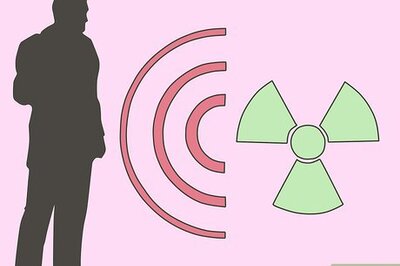
views
A long-pending plan to merge the film media units under the information and broadcasting (I&B) ministry with the National Film Development Corporation (NFDC) was formally set in motion on Wednesday with the ministry issuing multiple orders to this effect.
As per three different orders issued by the I&B ministry on Wednesday, the Films Division (FD), Directorate of Film Festivals (DFF), and National Film Archive of India (NFAI) will be formally integrated with the National Film Development Corporation (NFDC) under its newly carved production, promotion and preservation verticals, respectively.
An order on integrating the Children’s Film Society of India (CFSI) with NFDC is yet to be issued.
As per a government statement, the merger will ensure a balanced and synergised development of Indian cinema in all its genres— feature films, documentaries, children’s content, animation, and short films and will lead to better and efficient utilisation of existing infrastructure and manpower.
The orders came after the union cabinet in December 2020 approved the merger of the four government film media units with the public sector undertaking NDFC, with the aim of better coordination and synergy between the film bodies, avoiding duplication, as well as optimal utilisation of resources leading to their improved efficiency.
Prior to that, an expert committee headed by former I&B secretary Bimal Julka on review of autonomous bodies also looked into the details of the merger and had, among other things, proposed an umbrella organisation for the film bodies with four verticals on film production, festivals, heritage and knowledge for coordinated functioning of the ministry’s films wing. The report was submitted in June 2020.
As per the statement, the ownership of the assets available with these units will remain with the Government of India.
Established in 1948, FD produced documentaries and news magazines for publicity of government programmes and cinematic records of Indian history.
NFAI was established as a media unit in 1964 to acquire and preserve India’s cinematic heritage.
DFF was set up in 1973 to promote Indian films and cultural exchange.
The move to merge the film media units began in 2016-17 and is part of a larger rationalisation exercise of autonomous bodies under the central government which is underway across ministries.
The central government has allocated Rs 1,304.52 crore to support the film sector up to 2026.
What do the orders say?
The order on the integration of FD with NFDC states that the former’s mandate for the production of documentary films will be transferred to NFDC from April 1.
This means documentary films that were produced by the FD will henceforth be produced under the production vertical of NFDC. FD will, however, complete all ongoing projects.
This subunit of the vertical that will produce documentaries will continue to be known as the Films Division.
Similarly, DFF’s mandate to organise the International Film Festival of India (IFFI) has been transferred to NFDC with immediate effect under its new promotion vertical and the 53rd edition of the festival to be held in November this year will be organised by NFDC.
Other activities conducted by DFF will be transferred to NFDC by July 1.
The third order issued on Wednesday stated that the entire mandate of NFAI will be transferred to NFDC from 1 April under its preservation vertical.
The employees of FD, DFF and NFAI will be attached to the newly created NFDC verticals as a temporary measure and will continue getting their salaries and allowances they were entitled to under these organisations.
Issues with the merger
The merger has met with opposition not just from the employees of the media units, but also from a large section of the film industry.
Multiple employees across FD and NFAI told News18 they stare at an uncertain future given that they have been attached to NDFC merely as a temporary measure. Many of them have been resisting the integration.
In December 2021, hundreds of people associated with the film industry, including actor Naseeruddin Shah and filmmaker Vikramaditya Motwane, opposed the merger of the film bodies, stating that the process lacked clarity and transparency.
Explaining the possible pros and cons of this move, government officials said that it has to be seen how NDFC will manage the additional responsibilities of the media units given that it hasn’t been profitable in the last few years.
“But then, even if the other organisations were earning some revenues, that would go to NFDC and that’s the positive side of it,” an official explained.
Read all the Latest News India and Breaking News here




















Comments
0 comment